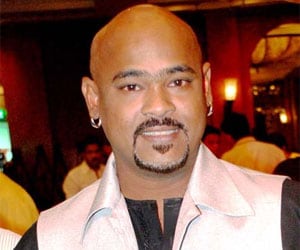Kambli, Vijender and the good life

The buzz around Vijender Singh's 'hero-to-heroin' journey refuses to die down. A drug bust by the cops found a link to India's best-known boxer, and since then there have been allegations that Vijender regularly consumed the drug, that he was even part of a huge cartel. The truth, as always, remains shrouded in secrecy.
- Updated: 15 April 2013 18:11 IST
 The buzz around Vijender Singh's 'hero-to-heroin' journey refuses to die down. A drug bust by the cops found a link to India's best-known boxer, and since then there have been allegations that Vijender regularly consumed the drug, that he was even part of a huge cartel. The truth, as always, remains shrouded in secrecy.
The buzz around Vijender Singh's 'hero-to-heroin' journey refuses to die down. A drug bust by the cops found a link to India's best-known boxer, and since then there have been allegations that Vijender regularly consumed the drug, that he was even part of a huge cartel. The truth, as always, remains shrouded in secrecy.
Now, because I have had close links with Indian boxing as a journalist, people have been asking, 'So, what really happened?' Uhh, no idea. As sports journalists, we aren't expected to delve into what an athlete does in his spare time, with his friends, in his bedroom, etc. Yes, some of us might chance upon bits of privileged information, but - for reasons of practicality as much as of the conscience - no non-tabloid sports reporter would consider going to town with the details. Still, to answer the original question: seriously, no idea.
The other question I've been fielding is: 'Is Vijender Singh the Vinod Kambli of boxing?' Simply, did success go to Vijender's head, did he lose focus, did the good life throw him off balance, like it did Kambli? In India, there's a cricketing parallel to practically anything you want to talk about.
Any response I attempt must be based on intangibles and conjectures.
The simple answer is: perhaps they did lose their way. But to go from an underprivileged life - Vijender is a semi-educated son of a bus driver from a remote village in Haryana - to one of wealth and access, and at a young, impressionable age ... I cannot say with confidence that I'd have fared much better.
I've heard it casually thrown about that Laxman Sivaramakrishnan couldn't handle his stupendous early success, that Kambli became somewhat unhinged because of all the adulation; and earlier, that even Salim Durrani was too dazzled by the world of glamour to do justice to his apparently incredible talent. More recently, we hear, Rohit Sharma, Shikhar Dhawan and Murali Vijay also went off the track a bit before getting back on.
Which brings me to the young cricketers. The game, today, is a money-spinning machine, and the Indian Premier League, more than anything else, has caused a fair share of that money to go out to young cricketers. The flip side is that in this new set-up, the cricketer is a commodity - the product that is being sold to earn money. Ergo, as with any product, he must be kept healthy, in good shape.
Young cricketers must learn their cricket themselves, become good enough to reach the top. But once there, and once the money and the good life come calling, they are still out there on their own. And so it is that there are too many Vijenders and Kamblis in Indian sport, with none of the counselling and hand-holding they need to handle the pressures of the game or the limelight.
It's an oft-discussed topic that cricket in India is no longer limited to urban centres. It never really was, but today, because of the success of small-towners like MS Dhoni, Zaheer Khan and many others, "the Indian team represents more than ever before, the country we come from - of people from vastly different cultures, who speak different languages, follow different religions, belong to all classes of society," as Rahul Dravid said so eloquently at the Bradman Oration.
I am not for a moment saying that non-urban boys need more guidance than boys from big cities. I am not even saying that this is an Indian problem. If anything, world sport is littered with such examples. In fact, the cricketers I mentioned earlier are big-city boys. But guidance is crucially important when people from various backgrounds come together and earn lots of money at a very young age. Instead, what we normally find is that the cricketer in question will quickly gather a group of sycophants who, as sycophants must, do more harm than good to the youngster.
One hopes there won't be too much talent wasted for want of a little counselling which, I think, could have helped Vijender strike the right balance between his true calling - boxing - and the good life. But while you and I can only hope, the administrators can (and must) do what it takes to ensure that it doesn't happen. The responsibility is theirs; they, after all, sell the product and earn the money.
